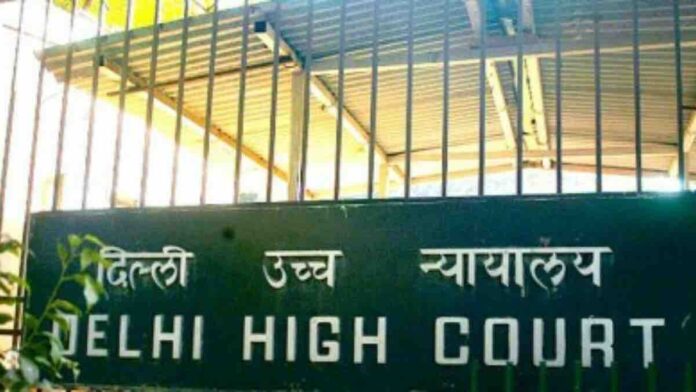The Delhi High Court has directed the Delhi Jal Board (DJB) to ensure regular supply of fresh drinking water to the inhabitants of Bhalswa resettlement colony here which is located near a landfill.
A bench of Chief Justice Satish Chandra Sharma and Justice Sanjeev Narula granted four weeks’ time to the counsel for the DJB to file a detailed status report in the matter.
“In the meanwhile, DJB shall ensure regular supply of fresh drinking water to Bhalswa resettlement colony,” the bench said.

The high court was hearing a plea seeking to provide basic amenities, including sanitation, drinking water, health and education services, to the inhabitants of Bhalswa resettlement colony which is located near the landfill leaving the whole area polluted.
It had earlier sought responses from the Delhi government, municipal corporation, DJB, National Human Rights Commission (NHRC) and other authorities on the petition.
During the hearing on Friday, the counsel for DJB submitted before the court that the board has ensured regular supply of fresh drinking water to the colony and in case of any interruptions in the pipeline supply, it supplies water tankers in the area, as and when the need arises.
The high court also granted four weeks’ time to NHRC and other authorities to file their replies to the petition.
The petition has also said that the residents are forced to live with contaminated water and poor living conditions due to which they are facing serious skin ailments and trauma.
Bhalswa resettlement colony is situated in North West part of Delhi, adjacent to Bhalswa landfill and around 20,000 people are residing in the colony.
The plea said resettlement in Bhalswa was done in 2000 to 2002 from 11 places in Delhi — Gautampuri Yamuna Pusta, East of Kailash Gadhi, Jahangirpuri, Gopalpur, Seelampur, Dakshinpuri, Preet Vihar, Ashok Vihar, Rohini, ISBT and Nizammuddin Barapullah.
Petitioner Pushpa, a Delhi resident, said the purpose of resettlement is to ensure better and systematic way of living to the resettled people.
Resettlement by the government is done under a planned manner in any area where the very foundation is to provide essential and basic amenities to the resettled people, she said.
However, the residents of the colony have been struggling to attain basic amenities like clean potable water, drainage and sanitation and education even after more than 20 years of resettlement, the plea said.
The plea, filed through advocates Varun Mudgil and Manmohan Singh, alleged the authorities have been ignorant to their legal duty which has led to deaths of many people and children, including an infant.
Education is essential for personal and social development of children, however, the children of the colony are treated differently by the State for the purpose of education, the plea submitted.
Also Read
It sought direction to the Delhi Urban Shelter Improvement Board (DUSIB) to provide land to DJB to construct Underground Reservoir (UGR) in the colony and to provide adequate and quality drinking water supply through taps.
The plea further sought to direct the Delhi government’s Education Department and Department of Land and Building to construct schools up to class 12 in the area.
The petition also sought direction to the NHRC to conduct a spot enquiry in accordance with law in the colony to check violation of human rights of the residents and initiate action against erring officials.
The National Commission for Protection of Child Rights be also directed to conduct an inquiry for gross violation of child rights in the area and on the basis of the outcome, initiate appropriate legal and departmental action against erring officials, it said.







